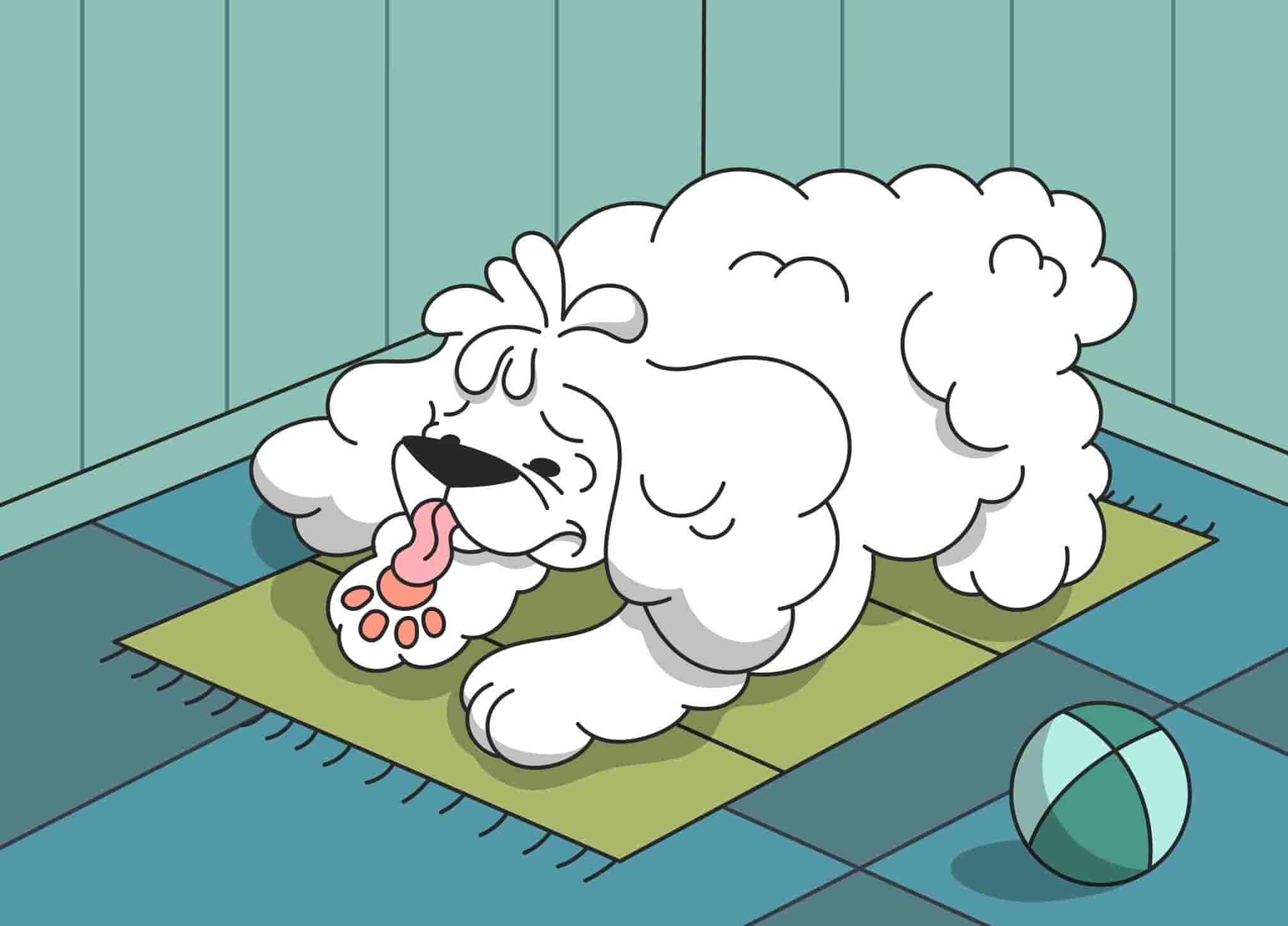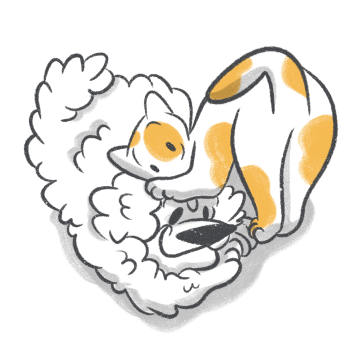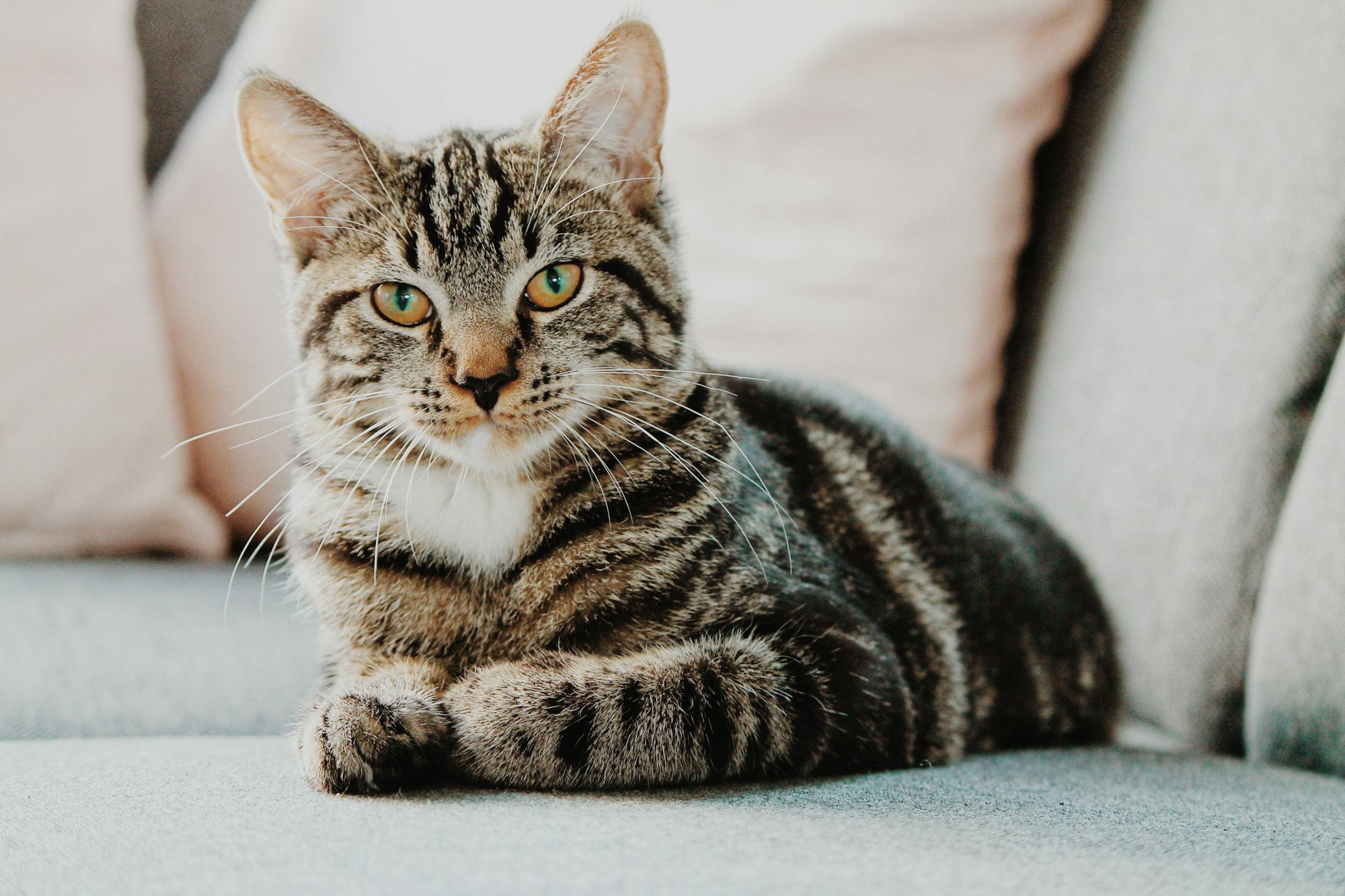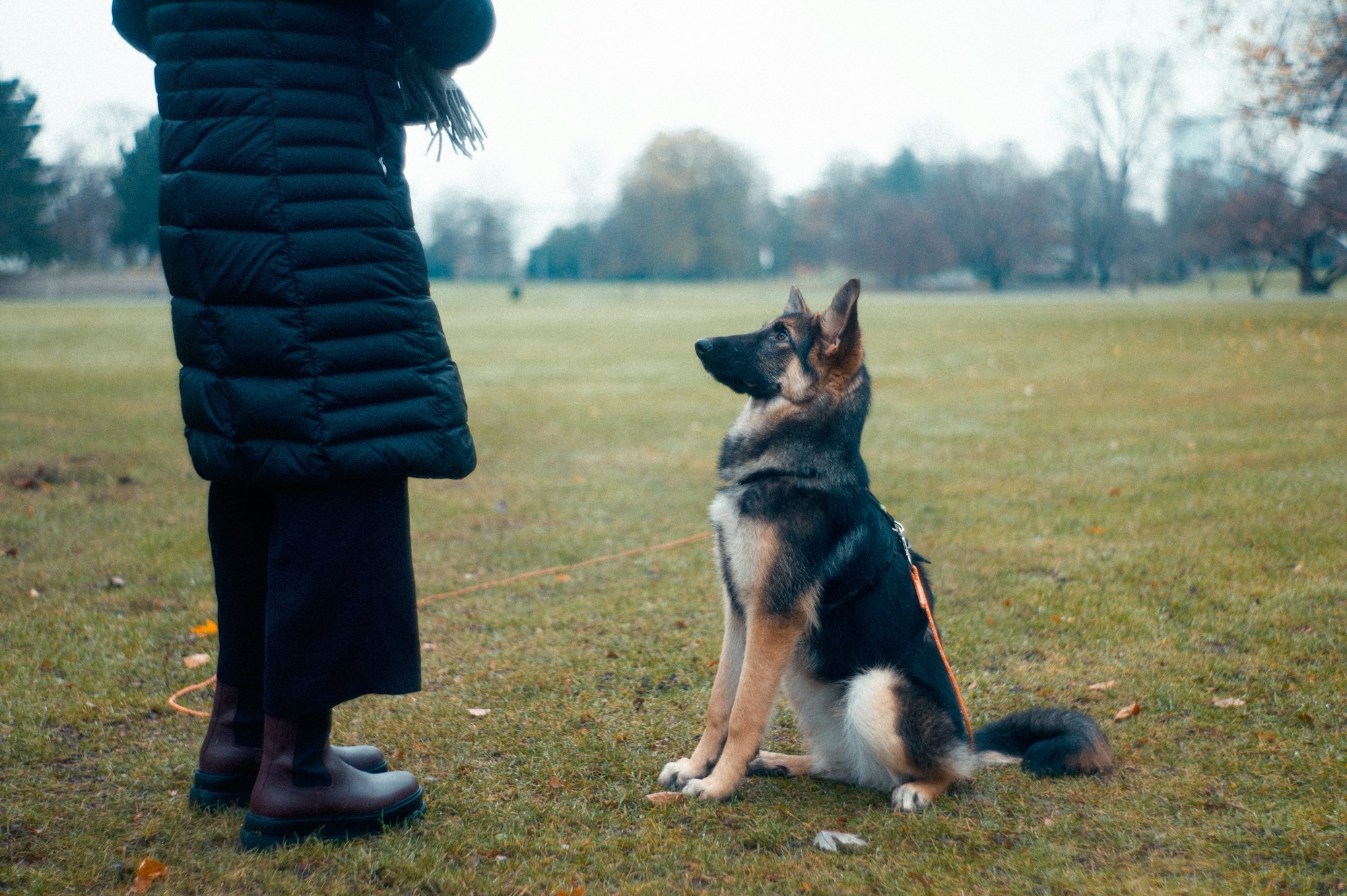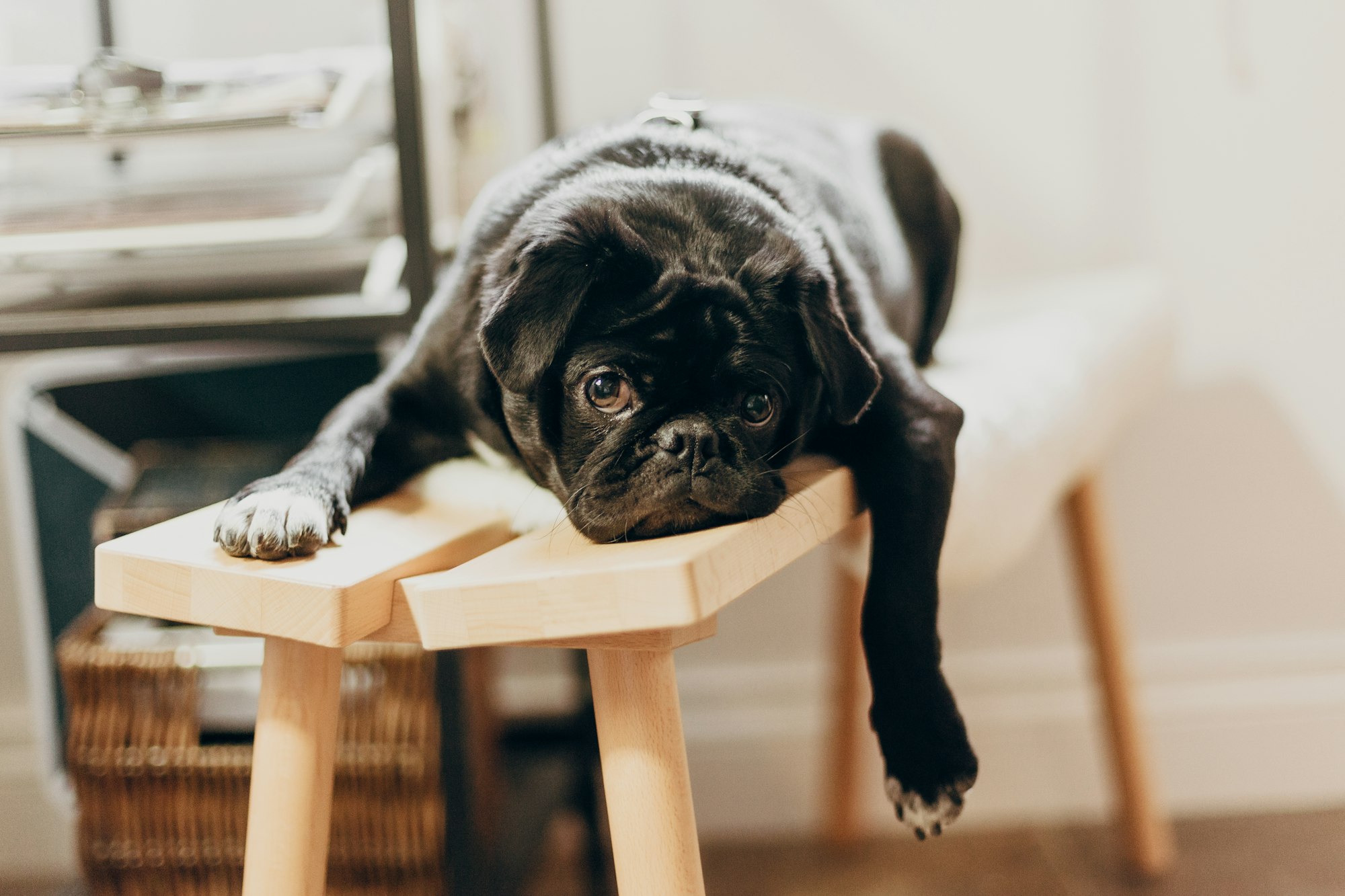If you notice your dog licking their paws from time to time, you might have wondered: “Why is my dog licking his paws? Is it possible that my dog is turning into a cat?”
Kidding aside, it is normal behavior for dogs to be licking their paws occasionally while grooming themselves, say upon returning from their daily walk outside, after eating a meal, or when they’re preparing to go to sleep. However, when dog paw licking is done excessively and with more intensity than usual, it could be a signal of a health or behavioral issue that needs to be looked into.
Stop Googling - Ask a Real Vet
Reasons For Dog Paw Licking
Once again, it is normal for dogs to lick their paws on occasion when they are self-grooming. However, if you notice that your dog keeps licking their paws more than the usual or if they keep licking one paw in particular, there’s probably an underlying cause that needs to be addressed. Keeping this in mind helps to find solutions and provide relief from the discomfort or pain that your dog might be feeling. Here are some of the possible reasons:
1. Injuries
Wounds and Foreign Objects
When the licking of the paws happens all of a sudden, most especially when the focus of their licking is on just one paw, carefully inspect their paw(-s) first to see if there may be a wound or a foreign object such as a thorn or other sharp objects. Examine paw(-s) well, checking nails, paw pads, the spaces in between toes and their fur, as well as the front side of dog's feet.
Do this gently to avoid aggravating the discomfort or pain that they may be feeling. This is an initial step that you can take to determine whether your dog has hurt themselves by possibly having stepped on something that is now causing them discomfort, resulting in them licking their paws.
Toenail Injury
Your dog may also have a toenail injury. This is when your dog’s nail is partly torn off as a result of getting caught up in things like the carpet, grass, cloth, or even you. This may cause your dog’s toenail to bleed and may lead to swelling in their paws.
In the instances mentioned, basic first aid may be administered, although some cases may need veterinary care.
Overgrown Nails
Nails that are overgrown may cause pain in your dog’s feet, leading to excessive paw licking. Apart from causing pain, long nails may also make dogs more prone to injuries.
To prevent this, regular nail trimming is beneficial. If you’re worried that you might hurt your dog while cutting their nails, you can bring them to the vet or an experienced dog groomer for assistance.
Sprain or fracture
If your dog is licking their paw while having other symptoms such as limping and crying upon movement, it might be because of a sprain or fracture. If you suspect that such is the case, it is necessary to observe your dog closely and be extra careful so as not to aggravate the pain or cause unintentional aggression due to the pain they are feeling in the the location of their injury. Veterinary treatment may be necessary.
Burns and Blisters
Some possible causes of burns and blisters on a dog’s paws may include having walked on hot concrete floors or having been exposed to certain chemical cleaning agents. Because it feels uncomfortable and painful, this may cause them to lick their paws.
Signs of burns include cracked and reddish paws that may have blisters or are peeling. If your dog indeed has burns or blisters on their paws, they may need pain relief medication which your veterinarian will prescribe.
2. Allergies and Skin Issues
Dermatitis
Another possible reason why a dog is licking their paws is them having a skin condition such as dermatitis. Oftentimes, dermatitis is secondary to having allergies or a bacterial infection.
Working with your veterinarian to determine what’s causing your dog’s dermatitis might be helpful. Some concrete examples of elements that may cause dermatitis in your dog include chemicals used in the garden, some types of grass, and certain plants. If this is the case, what you can do is clean your dog’s paws upon entering the house. You might also want to consider more pet-safe alternatives in your garden and home.
Snow may also cause irritation in your dog’s skin (including their paws), and so does de-icing agents such as salt. To find relief from this, your dog may resort to paw licking. There are ways to prevent this from happening such as wearing boots on your dog when going out in the snow, using pet-safe de-icers, or using paw wax.
Acute moist dermatitis
Acute moist dermatitis or hot spots are painful areas of inflammation in the skin that appears reddish and irritated, and may show signs of swelling too. It is secondary to sudden itchiness leading to constant licking of the area. Hot spots may often be identified with red, moist, and itchy skin, coupled with a loss of hair in the area.
When it comes to hotspots and how to stop a dog from licking their paws, a home remedy that may help is to apply topical antimicrobial and anti-inflammation sprays for the meantime. However, it is always better to consult with a vet on which medication to use until you are able to take your dog for a check-up and determine what causes the hotspot on your dog's paw(-s).
Dry Skin
If you see flakes or dandruff in your dog’s fur, this may be indicative of having dry skin, which may also result in dog paw licking due to the itchiness that they feel. To combat this, an option is to apply a moisturizing cream or give them supplements such as Omega-3 oil to help moisturize dry skin. It’s better to consult with your veterinarian to discuss these options.
Allergies
Just as with humans, allergies are also common with dogs. If you notice your dog scratching and licking their paws, it could be an allergy. Dog allergies may be caused by a variety of things such as food, environment, or skin contact with an irritant.
Allergies may cause itchiness and irritation in your dog’s paw pads so they may try to relieve this by licking on their paws. It may also cause head shaking as a result of ear inflammation.
In particular, food allergies are known to cause itchy paws. The thing about food allergies though is that it might be hard to determine the ingredient that they are allergic to. Your vet may suggest measures such as a special diet without common allergens or an elimination diet to determine what exactly your dog is allergic to.
Some signs that dog paw licking may be due to an allergy are red skin or a dark pigmentation due to frequent licking. There are dog marketed topical sprays or creams that contain hydrocortisone which may help lessen the itchiness and provide relief. If the itching is more severe, they might need prescription medications. Again, it's better to talk to a certified professional first to discuss the treatment.
3. Bacterial / Fungal Infections
Dogs may develop bacterial or fungal infection on their paw as a result of them licking it, which may be secondary to allergies. If not addressed, this may lead to more licking since it might be causing your dog discomfort or pain.
As a remedy, medicated baths and anti-fungal creams may help eliminate bacteria or fungi. Daily cleaning of the area may help too. You should consult with your veterinarian when it comes to the options for treatment.
4. Ticks, Mites and Other Insects
When your dog goes outside, there’s a possibility of parasites, ticks, or mites finding them. When they do, you may find these tiny suckers hiding underneath your dog’s fur, in between their toes, and their paw pads. Some signs to look out for are itchiness, red/inflamed skin, hair loss, and scabbing. A dog that keeps scratching their ear and licking their paw may be trying to from the discomfort caused by parasites, ticks or mites.
Preventative measures are important to keep your dogs away from these critters since they don’t just cause discomfort but may carry diseases to your dog as well.
There are topical or oral medications, as well as medicated baths that can eliminate the unwanted critters, treat your dog’s skin, and relieve the itching or inflammation. You can consult your veterinarian about the possible options for treatment.
While exploring the outdoors, your dog might get bitten by insects along the way. A bee sting is possible too, especially because many dogs are fascinated by them. If your dog gets bitten or stung by an insect on one of their paws, they will try to ease the discomfort by licking on it.
You may need to bring your dog to the veterinarian for treatment if you suspect a bite or a sting. Topical steroids and oral antihistamines may be subscribed to treat insect bites or stings.
5. Cysts
Another possible reason for paw licking is that there may be a cyst or tumor on one of your dog’s paws.
Read More: Things That Go Bump: When You Find A Lump On Your Dog
6. Behavioral Issues
The act of dogs licking their paws constantly may also be due to boredom, stress, and anxiety if the conditions mentioned above are ruled out. If your dog is licking their paws, it may be because the repetitive movement relaxes them. Due to frequent licking, the affected area may show lick granuloma, a loss of hair, and may also appear thickened.
Meanwhile, if your dog is excessively drooling and licking their paws in certain situations such as a visit to the vet or when there are other people around the house, it may be the result of anxiety.
There are prescription medications that can help treat irritations caused by dog paw licking, but it is necessary to determine what is causing your dog to be anxious. After finding this out, you may seek help from a veterinarian or an animal behaviorist so you can understand and better address your dog’s anxiety.
If you feel that the licking of paws is due to boredom, it may help to take them on more walks and engage them in play and different mental and physical activities to stimulate them.
What To Do If Your Dog Licks Their Paws Excessively
The first step that you can take if you notice your dog licking their paws excessively is to inspect the paws closely. Check if there is redness, scabbing, bleeding, blisters, bruises, discharge, foreign objects, a broken nail, and anything unusual. If needed, administer first aid.
Meanwhile, it is essential to call your veterinarian whether your dog’s paws look unusual or not. Health issues need to be ruled out before trying to resolve a behavioral problem. To treat irritated paws, your vet may suggest prescription medications or advise you to consult with a specialist for further testing.
Meanwhile, if your dog appears to be in pain, it might be an injury that needs immediate care. While we hope that our pet won’t have to go through any emergency, we never know when dogs may suffer from unexpected accidents and injuries. Because of this, preparation on the part of us pet owners is important in order to protect our pet as well as have that financial net in times of trouble. A good insurance alternative such as Petcube’s Pet Emergency Fund makes this possible.
With the Pet Emergency Fund, you get $3000 per year to protect upto 6 pets from pet emergencies. You also get unlimited telehealth anytime and anywhere, allowing you to consult with certified veterinarians at any time of the day and wherever you may be. Pet Emergency Fund gives you the peace of mind that you need so that you can focus on your pet’s healing and recovery
We are offering an exclusive 27% off on subscriptions to our blog readers if you follow this link. This is a great deal that you wouldn’t want to miss!
How To Stop Your Dog From Licking Their Paws
When we talk of how to stop your dog from licking their paws, a few home remedies can help with this. Below are some:
- Trim their nails regularly to avoid discomfort, pain, injury, and broken nails.
- Clean your dog’s paws regularly to remove foreign elements.
- Let your dog wear shoes or boots outside, especially during winter.
- Consider a bitter-tasting yet pet-safe topical product.
Do note that some cases may be secondary to a health or behavioral issue that needs to be addressed.
Use Online Vet To Diagnose Your Dog's Health
Looking for a 24/7 online vet that you can consult with regarding your pet’s well-being? Online Vet by Petcube might be the answer.
With Online Vet, you can get professional help from a team of certified veterinarians for only $19.99/month. Talk to a vet online with 24/7 access and unlimited chats from anywhere.
Have a peace of mind when it comes to taking care of your pet. Online Vet got your back.
Was this article helpful?
Help us make our articles even better

